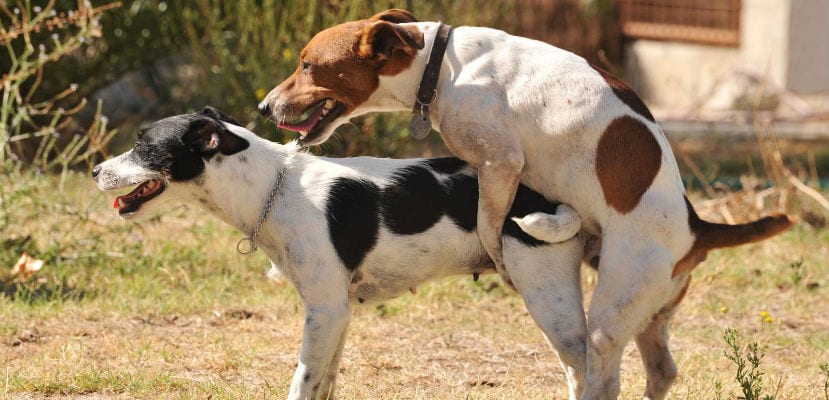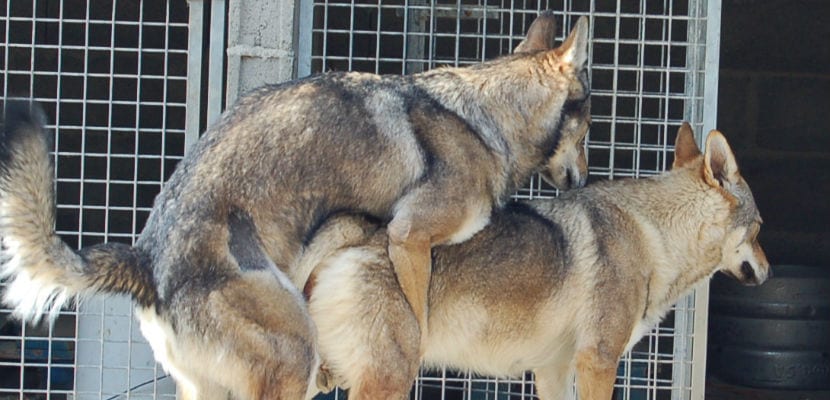
Sometimes we observe behaviors in our dog that may seem strange to us, but they all have an explanation. The mount is one of them. It is a behavior surrounded by myths that, contrary to what is usually believed, it has nothing to do with sexuality. We tell you more about it.
Main reasons
It is often believed that riding is motivated by reproductive purposes, the truth is that there are different reasons that can lead our dog to adopt this behavior. They are as follows:
- Excitement. We refer to nervousness and over stimulation. For example, it is common for dogs to ride their friends when they are playing or someone they have just met. It is a sign of joy, of overwhelmed emotion.
- Anxiety. It is something similar to the previous one, since the nerves also come into play, but in this case taken to a more negative terrain. If we do not correct it in time, this behavior can lead to more serious problems.
- Sexual behavior Dogs also seek pleasure with this gesture. Sometimes it takes place in neutered dogs and even females. It occurs more frequently in those who have previously had some sexual experience.
- Health problems. In some cases the riding is motivated by certain diseases. For example, certain classes of tumors, alterations in estrogen or testosterone levels, or other disorders that affect the smell of the anal sac, urinary tract, or bladder.
- Game. Sometimes the only purpose is to play with the other dog. This is a way to attract attention and encourage you to have fun with it. In this case it is usually accompanied by other gestures such as small jumps or running.

Rides her on people
In the same way that a dog rides other dogs, can acquire this habit with people. We usually associate it with sexual urges, blaming this behavior on zeal or the hormonal revolution. In some cases it is, but in other cases it is related to various reasons.
The causes for which these animals mount people are the same as we have named above. This behavior is more common during the puppy stage., during which they are still learning to socialize and show an overflowing energy level.
How to avoid it
It is important to eliminate this habit in our dog. Not only is it embarrassing for us, but it can lead to serious problems for him. For example, if we don't correct it in time, it can become an obsession. Or it can make another dog react aggressively, thereby endangering the integrity of our pet.
There are some guidelines to solve this problem:
- Say no". This is an effective trick when we want to cut off any unwanted behavior in the dog. When we notice that it is getting up towards us or another dog with the intention of riding, we should say "NO" in a calm but firm tone. You should never yell as this could make you more nervous.
- Wear the strap. A little tug on the leash can cut through this behavior quickly. Always with care, without harming the animal.
- Distract your attention. When we notice that our dog wants to ride another, we can attract their attention with toys or treats. This trick is very useful, since using the positive reinforcement technique we can correct this behavior in an easy and pleasant way.
- Good doses of exercise. As we mentioned before, many times riding is caused by an excess of energy. It is essential to offer our dog long daily walks and a good dose of games if we want him to feel calm and balanced.
The myth of dominance
We open a separate chapter to disprove this widespread myth. Although many say so, this theory has been in clear decline for years. More and more experts claim that these animals do not base their behavior on any hierarchy and that riding is not a sign of dominance. Similarly, the dog that is allowed to ride does not have to be submissive.